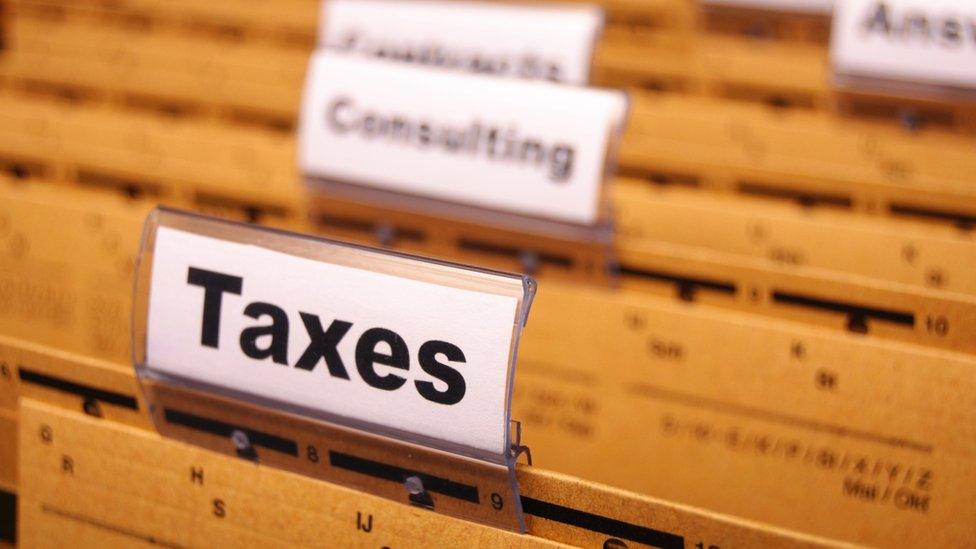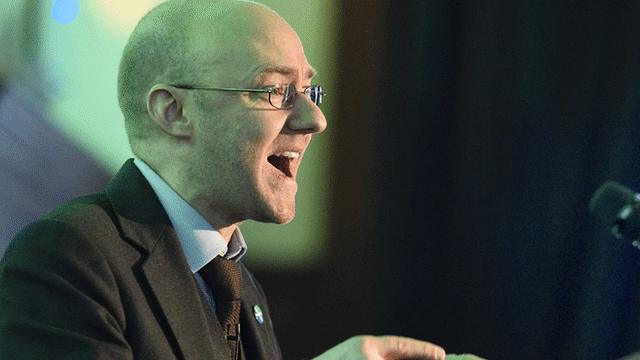Holyrood 2016: Greens 'confident' 60p tax rate would generate revenue
- Published
Patrick Harvie: "The most important thing about our tax proposals though is that most people would be better off"
The Scottish Green Party's co-convenor has said he was confident charging the highest earners 60% income tax would generate revenue.
Patrick Harvie rejected the view that the richest in Scotland would move their tax affairs if the rate went up.
He told the BBC that HMRC was working to reduce the risk of people looking for a more favourable tax set up.
The Scottish Greens want to see a new 60p income tax introduced for those earning more than £150,000 a year.
The party has also set out plans - ahead of the Holyrood election on 5 May - for a new 43p rate, starting at £43,000.
Speaking to BBC Radio Scotland's Good Morning Scotland programme, Mr Harvie said: "A great many of the people who are in that highest tax band in Scotland I believe would remain in Scotland.
"I am very confident that it [new 60p rate] would raise additional revenue, but for safety sake we have not build in an assumption about the additional revenue that would come in from that highest tax bracket.
"The most important thing about our tax proposals though is that most people would be better off."
Currently, basic income tax is charged at 20p in the pound; higher rate earners are charged 40p in the pound and additional rate earners pay 45p in the pound.

The Scottish Green Party wants the highest earners in Scotland to pay more tax
The SNP said the time was not right to increase the additional rate because of worries the 17,000 people who pay it in Scotland might move their tax affairs elsewhere.
Scottish Labour wants to see the 45p rate raised to 50p; the Scottish Conservatives are proposing no change and the Scottish Liberal Democrats want a penny on all bands including the 45p going to 46p.
The Scottish Greens estimate that under their plan, tax payers would only start to pay more once they were earning about £27,000 a year.
'Value of the asset'
Mr Harvie argues that those people who benefit from the Greens' plan on income tax would "also benefit from our proposals on replacing the council tax".
He told presenter Gary Robertson: "Most houses would be of a higher value in absolute terms but under our proposals most households would be paying less in their local tax.
"Yes, we would be talking about an increase for those that are of extremely high value properties and if you are sitting on a property which has gone up dramatically in value, the economy as a whole, our community as a whole, has increased the value of the asset you are sitting on.
"It is reasonable that some of that increased value comes back to the public purse."
- Published5 April 2016
